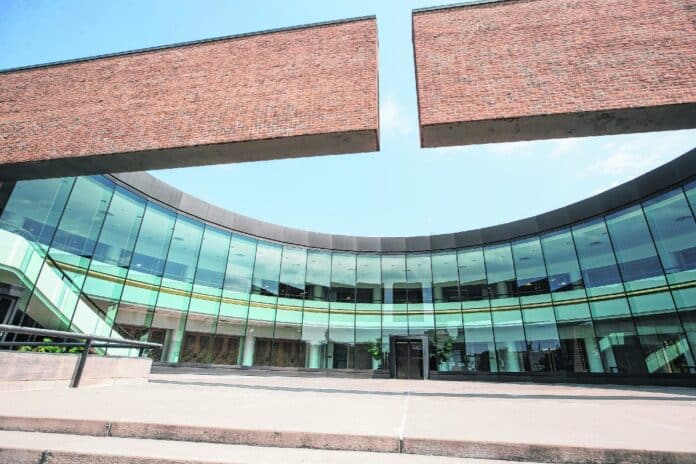Columbus City Council has given initial approval for an increase in water and sewer rates starting this August.
COn Tuesday, Columbus City Council passed the first readings for ordinances that increase the rates for both utilities. Two readings are required for final approval, and city council’s next meeting is set for June 15.
Utilities Interim Director Keith Reeves said both rates are scheduled to go into effect on July 1, with new water rates appearing on customers’ bills starting Aug. 1. The city council voted to amend the water rate ordinance to reflect this, as it previously had the effective date for phase one listed as Aug. 1 instead of July 1.
Doug Baldessari with Baker Tilly, a firm retained by the city for services related to both rate cases, said that the new sewer rates are likewise expected to start showing up on utility bills Aug. 1.
There are quite a few similarities between the two rate increases, such as a difference in increases across customer classes, changes to rate structures and similar cost drivers (such as infrastructure improvements and operating expenses).
Both increases are using a three-phased approach, which is as follows (per the submitted ordinances):
- Phase 1 – July 1, 2021
- Phase 2 – Jan. 1, 2023
- Phase 3 – Jan. 1, 2024
However, a key difference in the two rate cases is that the water utility is regulated by the Indiana Utility Regulatory Commission (IURC) and subject to a lengthy rate consideration and approval process. This process culminated in late March, with the commission approving a settlement agreement between the utility and other parties, which included lower rates than the city’s original request.
The IURC’s order on the rate case authorized the city to increase rates and charges to produce “additional revenue of $3,311,396, or an overall increase of 74.80%.”
The sewer utility, on the other hand, is not regulated by the commission, and its rates simply need approval from the utilities board and city council.
Reeves expects that, even with the increase to both rates, Columbus will remain “very competitive” in its rate structure compared to other communities.
However, he also said that rate increases do pose financial challenges for some customers and that there are a number of agencies to obtain assistance.
These include the Salvation Army, United Way of Bartholomew County, Human Services, Inc., the Lincoln-Central Neighborhood Family Center, Indiana National Guard, Love Chapel and Indiana Housing Now.
“We continue our moratorium on disconnections for non-payments, but that can’t go on forever,” Reeves said. “So we’re going to make every effort we can to accommodate or to get these accounts balanced out or at least on an ongoing payment plan before we begin anything like that.”
In addition to giving initial approval for rates, the city council also passed the first reading of an ordinance amending municipal code regarding the water utility. Reeves said that some of the changes come from the new rates or correction of existing errors.
He added that the utility is also seeking changes to its non-recurring charges, which are included in the modifications. These will need IURC approval, but the process will be much shorter than that of the rate case.
[sc:pullout-title pullout-title=”Residential increases” ][sc:pullout-text-begin]
According to the Office of Utility Consumer Counselor, monthly residential water charges for 5,000 gallons, currently $11.43, will rise to $19.80 once the rates are fully implemented in 2024.
A 4,000 gallon monthly sewer bill for a residential customer is currently $31.10 in Columbus, Baldessari said. His May 20 presentation showed that the cost would increase to the following amounts under the proposed rates:
Phase I: $34.94
Phase II: $38.09
Phase III: $40.37
[sc:pullout-text-end][sc:pullout-title pullout-title=”Financial assistance” ][sc:pullout-text-begin]
More information on assistance with utility payments and a list of helpful agencies can be found at columbusutilities.org/temporary-payment-extension-program/.
[sc:pullout-text-end]





